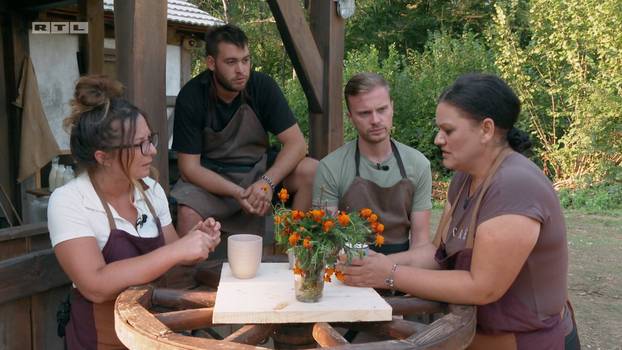Column | Yes, we are complicit. To anything and everything
:format(jpeg):fill(f8f8f8,true)/s3/static.nrc.nl/taxonomy/061fd2f-Rusman%252C%2520Floor%25202023%2520%255BDoomernik%25202320%255D%25201280%2520WEB.png)
When are you complicit in the world? That question occurred to me while reading Tommy Wieringa’s Essay Optimism without hope. In this booklet he wonders how to live without a future, or said more precisely, if the future only offers perspective on climate disasters, dictatorships and more disruptive things. The search results in a semantic row with the terms ‘hope’ and ‘optimism’, where the first is meaningless and the second is not – a statement that he does not really make it plausible, because he seems to use optimism as a synonym for ‘undisturbed’ or ‘a good mood’, rather than a posture that is indeed on the future.
Anyway, it was not the terms hope and optimism that make me think, but Wieringa’s words about his daughters. He writes: « The fear that strikes me with stupid is that about the future in which my daughters will have to spend most of their lives, if I have long been dead and buried. The uninhabitable country that we leave for them. »
We, adults, leave an uninhabitable country for them, the children. But hey, I want to say: I myself also grew up in an uninhabitable country, or at least, a warming country that did little against climate change. As a child I was upset about that, I felt a victim of the careless interaction with the earth. But in the meantime, as a 39-year-old, I have turned into a perpetrator-I am part of the ‘we’ in Wieringa’s sentence ‘the uninhabitable country that we leave for them’. How did that happen? Only by getting older. As Wieringa writes: « Everyone participates, simply because we are born in an ant colony that behaves like that as a whole, with a system that you can never completely escape as an individual. »
Compare it to connecting to the escalator. Malb-eating etiquette prescribes that people stand still on the right, so that one can go through on the left. In practice this rarely happens. You can then sigh behind the left -standing people, with the excuse that you couldn’t get through either. But gradually you become the problem: newcomers follow your example.
The escalator is absorbed for all collective problems. Whether it is climate, AI or geopolitics: as an individual you connect to a system that you did not choose yourself. You are inevitably from a certain point, for example when you are an adult, part of that system. But does that also make you complicit?
Writer Sinan çankaya would say so. In NRC He spoke about the Wandaden of Israel in Gaza last week: « I could have a private story of ‘not in my name’. But this is indeed happening in the name of us all. I am also complicit because the Dutch state of Israel supports military, diplomatic and politics. » According to çankaya, every citizen is therefore complicit to the actions of his government. This is exactly what some say about the Palestinians: that they do not revolt against Hamas, so the terror movement will support, and therefore also are perpetrators. In the case of the Palestinians, this argument does not apply: Gaza is not a democracy, protesting against Hamas is extremely dangerous for Palestinians. This is different in the Netherlands. Does this mean that we are morally obliged to demonstrate – or otherwise offer resistance – if we do not want to be complicit in an unjust status quo?
It is a complicated question. There is absolutely more resistance to the violations of war law in Gaza. Yet I initially have difficulty with the statement that we would all be complicit in government policy. That is different from complicity in climate change: in the latter we are involved as individual consumers, in the first only as part of the collective. We are complicit in climate change by doing something (flying, buying things, eating meat), only to the Gaza war (as a Dutch citizen).
I present the issue to my friends. The one immediately says: yes, we are complicit in the violence in Gaza. The second: not me, I voted for an Israel-critical party. The third, a lawyer, believes that the term complicity cannot be used too lightly. Then the fourth says surprised: « Why do you find complicity such a tough term? We are complicit in so many things? »
I found this a helpful contribution because she does two things at the same time: recognizing our responsibility and getting the word of his worst gravity. I think that people find complicity a tough term because they feel accused. But instead of as a destructive judgment, you can also see it as a starting point: yes, we are complicated with anything and everything, simply because we are adult citizens – and that encourages something to do something.
Floor Rusman ([email protected]) is editor of NRC

:format(webp)/s3/static.nrc.nl/wp-content/uploads/2025/06/05082658/data133175350-349c0f.jpg)
:format(webp)/s3/static.nrc.nl/wp-content/uploads/2025/05/30202505/data133024476-6122b7.jpg)
:format(webp)/s3/static.nrc.nl/wp-content/uploads/2025/06/11155543/web-1106BINasielministers.jpg)



